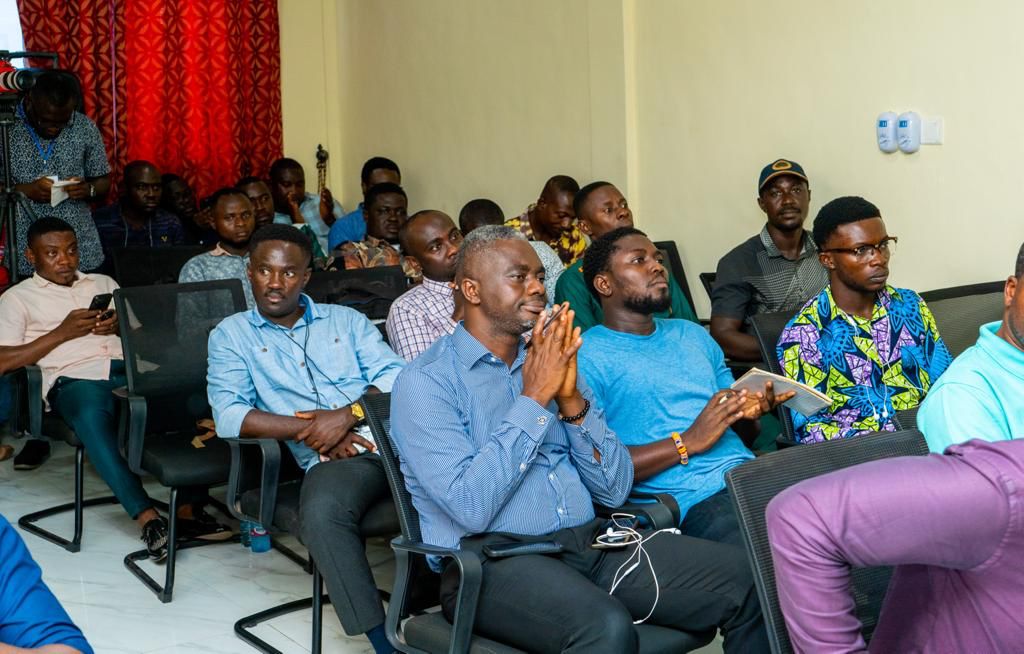
The Campaign for Female Education (Camfed) Ghana on Tuesday organized a research seminar in Accra to explore research evidence on post-secondary youth employment prospects in Ghana.
The 2019 seminar, the third in series, is on the theme: "Supporting Young People's Livelihoods: Exploring Post- Secondary School Opportunities."
Held in collaboration with the MasterCard Foundation Scholars Program, the seminar brought together representatives from the Ministry of Employment and Labour Relations, Ministry of Education, Ghana Education Service, non-governmental organisations and students.
The Director of Camfed, Mr. John Asibi Ali, who welcomed participants to the seminar said the 2019 session was designed to help shape policies and stimulate future research on post-secondary youth unemployment and entrepreneurship, which has been downplayed for so many years.
According to him, the meeting would explore research evidence on post-secondary youth employment prospects, skill sets needed to take up employment opportunities and challenges faced, as well as a discussion on gendered perspective on youth employment and entrepreneurship.
Mr Ali noted that Camfed has in the past commissioned research on issues relevant to girls education: Aspiration and gender in Ghana's junior high schools, 2014; impact of girls' clubs on the retention of girls in junior high schools in Ghana, 2015; the role of parents in influencing the aspiration, life choices and educational attainment of students and how their role is influenced by gender, 2016 and governance in public high schools in Ghana from a gender perspective.
Camfed in partnership with the MasterCard Foundation has been implementing the Scholars Program which seeks to support academically-gifted young women in rural communities within Camfed operational regions.
To understand the role teacher mentors play in school and how this affects the outcome of students, Mr. Ali said Camfed also commissioned another research on teacher mentoring in secondary schools in Ghana in 2017.
Following from the 2017 research, Mr. Ali indicated that camfed used its "2018 research seminar to explore research evidence on the support systems and programmes pertaining to guidance and counselling and teacher mentoring that affects students' interest in education, academic performance and other school outcomes, and the ability of students to successfully progress through school and transit successfully into tertiary education, employment or entrepreneurship."
In a presentation, Prof. William Baah-Boateng, Head of Economics Department at the University of Ghana said unemployment remains a major political and socioeconomic challenge in Ghana despite the economic growth of the country.
Prof. Baah-Boateng said the youth constitute a potential reserve for growth and development if they are productively engaged but they can also be a source of civil conflict and social tension if they were not gainfully engaged.
He indicated that in Ghana and most Africa countries, the youth especially, those who fall within the post-secondary bracket, face specific challenges in accessing labour market opportunities, which has the effect of lowering their chances of finding decent jobs due to lack of experience.
According to him the phenomenon of youth unemployment cannot be totally eliminated but can be managed if the right measures are put in place. He suggested a change in the narrative, to properly understand and diagnose the problem through a comprehensive analysis by major stakeholders.
"We cannot uproot unemployment, at every point in time unemployment will be with us. But what we can do is to minimize it and make sure that we bring it to the barest minimum, through policy suggestions and proper diagnosis and understanding of the problem" he stated.
Prof. Baah-Boateng called for quality education, training and skill development in a to reduce post-secondary youth unemployment, according to him, if knowledge and skills are prioritized over certificates, the minds of the youth will be trained to meet the labour market demands and this will lead to fewer cases of post-secondary youth employment.
Hits: 5
Read Full Story



















Facebook
Twitter
Pinterest
Instagram
Google+
YouTube
LinkedIn
RSS